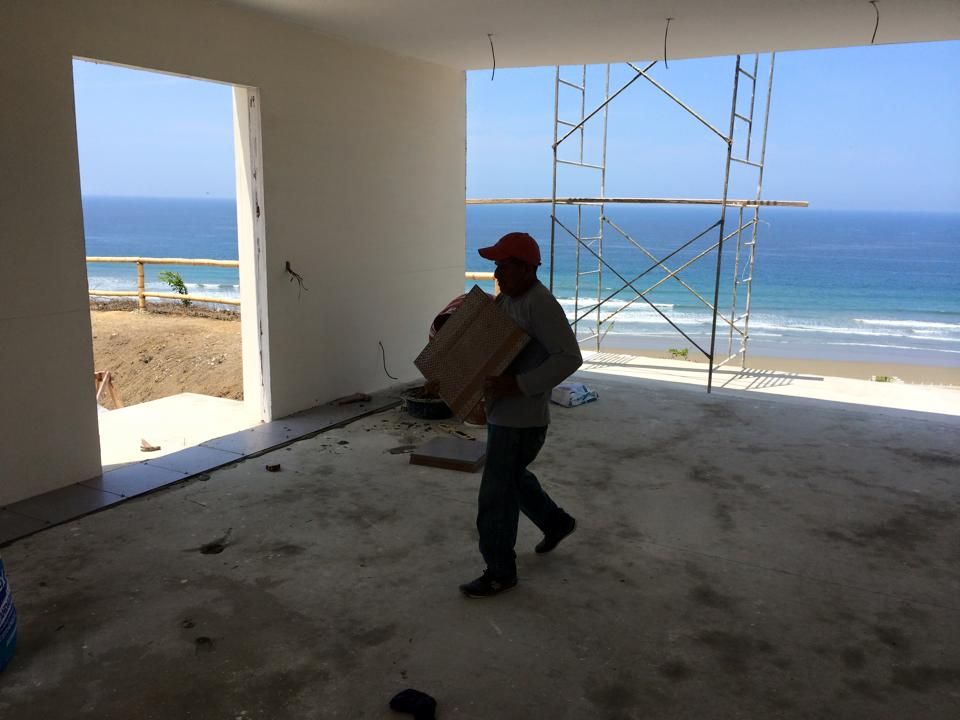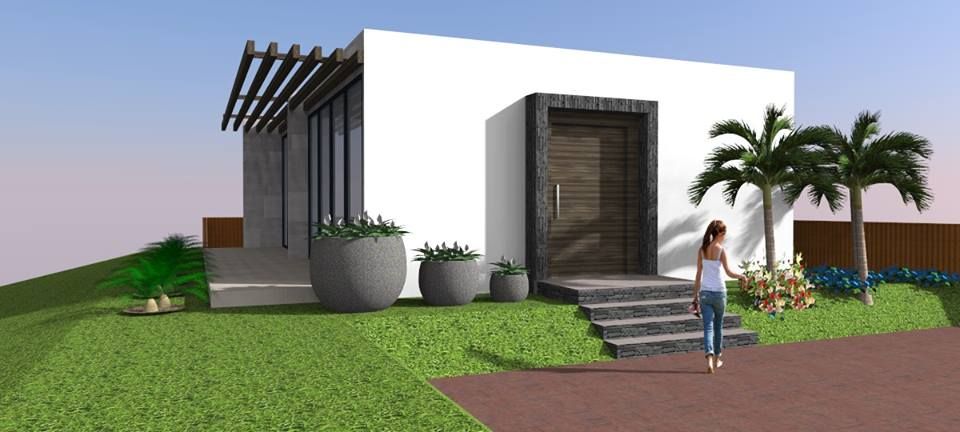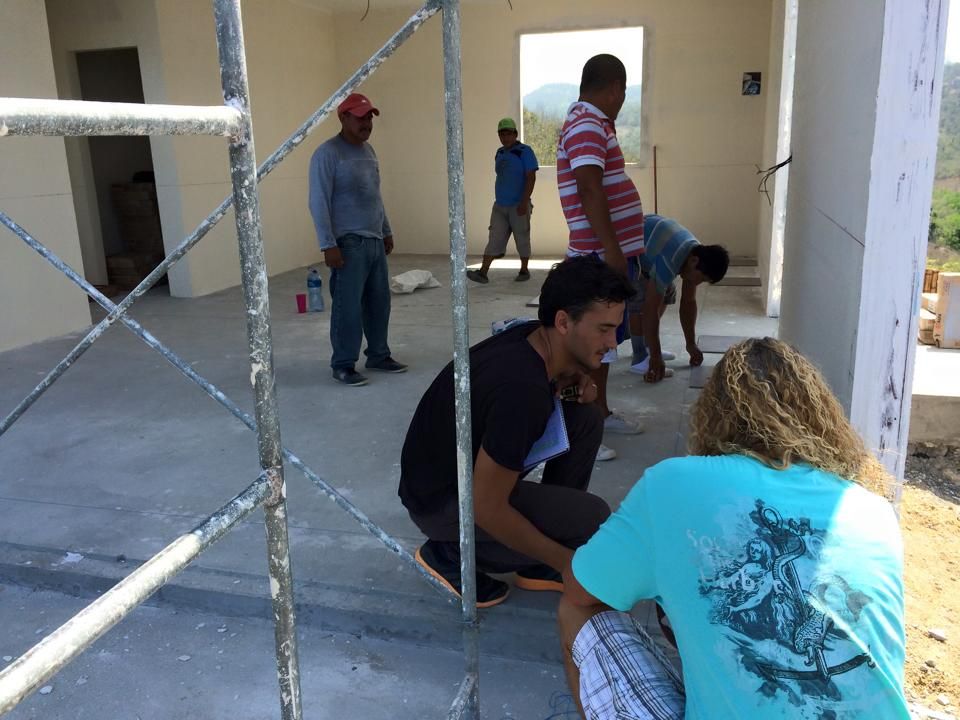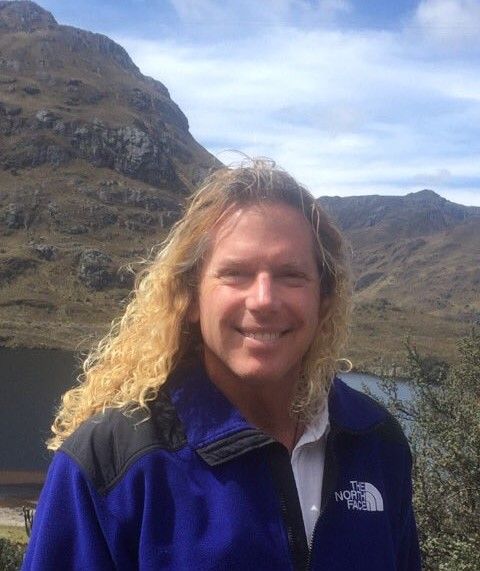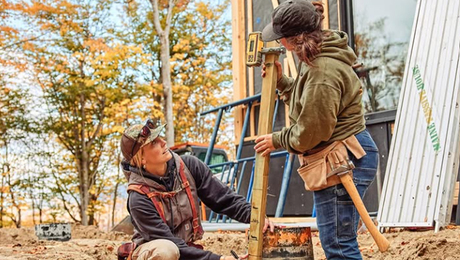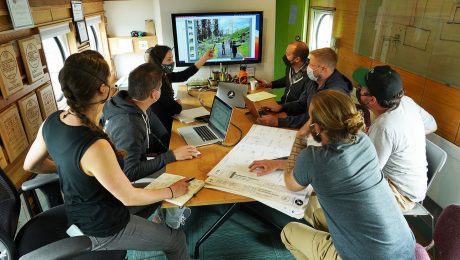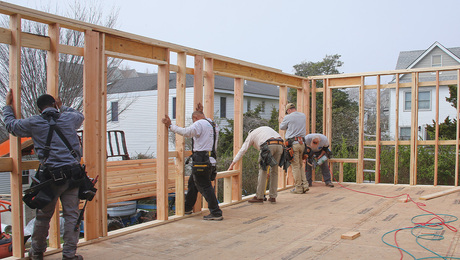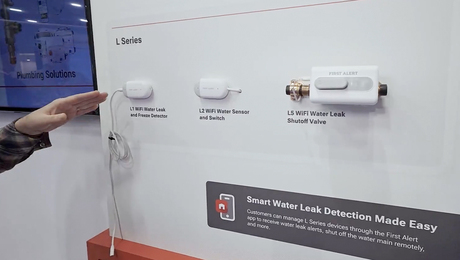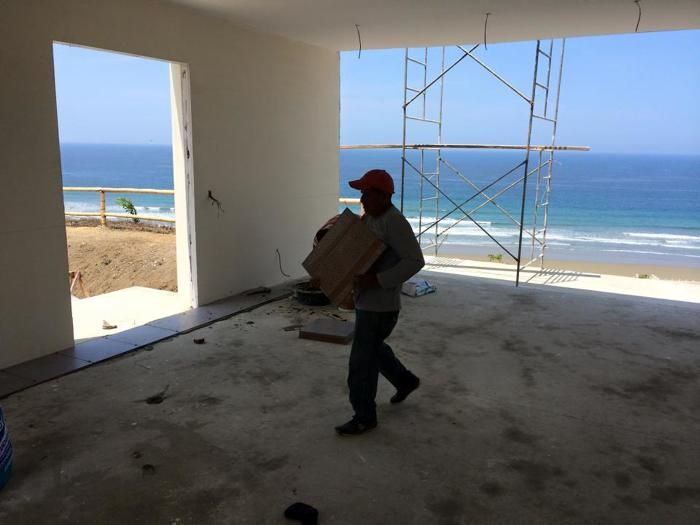
The first time Loren Birmingham went abroad to build, it was missionary work that took the Oregon framing contractor to the Togolese Republic, in West Africa, to build churches. Profit had nothing to do with it, Loren was a volunteer. Yet his charity still paid dividends, at least in human terms: Lorne got to see and appreciate the true impact of poverty for the first time in his life. “In the third world, poverty means you may starve to death, not just that you can’t get an iPhone,” Loren told me, speaking by iPhone from his beachfront bungalow in Olon, Ecuador, where today he’s building ocean-view condominiums.
Although he made no money, Loren returned from Togo a much richer man, simply by virtue of a new perspective, namely a deeper appreciation for all that he enjoys by luck of his birth as a citizen of the first world, and the wealth of happiness he witnessed in Africa, despite abject poverty.
Yearning to Build Abroad
During that first African venture, a building-abroad-bug bit Loren hard, and he started dreaming about returning to the developing world one day to build again, but this time with enough profit to make a living at it. Loren owns Tri County Developers, in Gresham, Ore., a residential construction company specializing in high-end hillside homes and apartment complexes. He grew up in the trades, mentored by his uncle, a builder, Loren’s first love was carpentry and became a production framer in the 1980s and later a boutique developer and high-end custom homebuilder through the mid-2000s.
Like everybody else, Loren was set back by the Great Recession. But he ran into a unique opportunity to help construct worker housing in the Cayman Islands. He loved the experience, and took some of the money he made to travel throughout the Caribbean and later South America looking for another chance to build on foreign soils. It was during this exploratory tour in 2008 that Lorne first visited, and fell in love with Ecuador, a speck of a country about the size of Colorado, but with four distinct climate zones, ranging from tropical rain forest to snow-packed alpine tundra, and thousands of miles of beaches, the Andes, the Amazon, and the Galapagos.
I asked Loren what motivated him to setup his construction company in a poor country, no matter how pretty, while struggling with a foreign language and culture? It’s a place many local folks want to abandon for the Untied States. “I’ve traveled the third world,” he told me, “and it’s not in Latin America.” He loves the country and the people, and Lorne came mostly for the adventure, “Fortune, I’m not all that concerned about it,” he said, “I really came out for personal reasons. I fell in love in 2008 when I spent time here, there’s just so much to see and do.”
Loren regards Ecuador as what he calls the second world. “People in Ecuador have electricity and gas, they cook indoors, and they have indoor plumbing. It’s a very different feel than you’ll find in the real third world, where folks cook outdoors on an open fire, when they have something to eat. I’ve traveled throughout Ecuador, Belize, Colombia, and Togo,” Loren tells me, “and everyone seems to be content with what they have–they are happy, they are not bitter.”
Ecuador is among one of the few nations that values Buen Vivir, or the good life, enough to measure the gross national happiness (GNH) index as well as the gross national product (GDP). Because of this focus on quality of life, Ecuador has become a place where lots of gringos (as North Americans are known) come to retire, and increasingly to raise their kids, “…and those are the folks I cater to,” Loren told me, “I am building for expatriate North Americans.”
American Dreams Built Abroad
Loren is not alone in catering to the American Dream abroad, when expatriates for the United States and Canada move to foreign retirement Meccas, such as Costa Rica and Ecuador, a country perpetually atop the top ten “Best Places to Retire” lists in magazines, such as International Living to US NEWS, they find expatriate contractors, like Loren, ready to serve them. “A lot of the local guys don’t want to deal with North Americans,” Lorne says. In fact, in the retirement magnet of Cuenca, many locals refuse to build for, or to sell to the gringos–demanding clients, unpleasantly punctual, and with some strange architectural preferences, such as open kitchens and large master bathrooms.
But Loren, having satisfied the richest and most demanding clients on U.S. soil, feels confident he can do the same for North Americans looking for beachfront bargains. Providing them a safe and familiar real-estate experience with the quality and guarantees they are used to. In short, Loren hopes to offer Anglo American standards at Latin American prices.
I asked him if it was hard to deliver on this business model while working in an environment where he cannot obtain reliable commitments from subs. He said it was it can seem hopless at times, “It’s almost impossible to schedule. This is hard for me. You cannot get precise times here, the culture does not allow it, and timeliness is not a culturally important value. Nobody can plan because the whole environment is unreliable, you go to do a two-hour transaction and it takes two days.” It’s also difficult to get materials, “Your electrician is running cable, using the standard black, white, and green wire, but when he goes to buy another roll, there’s no more green, only purple, so he starts running purple. I freak out, but then the electrician asks me, ‘what do you want me to do, there’s no more green wire?’ So I pull my hair out…” And Loren has plenty of hair to pull on, but that’s the way it is, he says. “You become a better person, you learn patience.”
Latinos in their Element
Loren told me a story of how construction demographics had changed in the United States, and how his was among the last, all-white framing crews in Oregon. “A driver delivering lumber once told me, ‘you’re the only white crew I’ve delivered to in probably six months.” Eventually Loren also found himself working with Latinos. I asked him if he noticed any difference between working with Hispanics in the United States and in South America, and he said that he did.
“I had up to 22 employees that worked for me in the States, mostly Latinos. I always tried to encourage the Latinos in the United States to move forward, but they always had the objective of going home. They sent money home every week and they seemed content to work and save, it was a temporary gig. When I tried to promote guys, they didn’t want to because they didn’t want to cause me problems when they left, which could be suddenly. I had guys working for me in the United States for over 15 years, and yet they were still ‘temporary’ workers in their mind.”
Meanwhile, down in Latin America, gaining skills to get ahead has become a nationwide mantra–private technical schools abound with waiting lists, and signs posted on the roads boast progress. “Down here, they are still cautious about going on their own, but guys do want to step up, learn new things and make progress. They plan for the long haul.” Lorne is considering setting up an ICF installation franchise and his guys are eager to learn this advanced concrete-construction method.
Pros and Cons of North and South
When I asked Loren what he liked about building in Ecuador that he’d take it back to the states, he answered facetiously, at first, “The weather, the beach,” he said, and then he became more philosophical: “I would try not to forget the relaxed style, nobody has high blood pressure here, eating in the car does not exist, time is not so important. I’d try to take back the long lunch, the shorter days, and I would not want to live the tyranny of time. Family matters, it’s more important, and for the other stuff, there’s always mañana Nowadays I’m less uptight if something does not happen on time. I don’t know if this is good, but I like it.”
He’d also like to take home the Santa Elena building department, the local jurisdiction under which Loren is building his six-unit condominium development. It’s located off a cliff, overlooking the Pacific Ocean. “Here their system is not up to par as far as being computerized, so it takes some time to get paperwork done. But in the United States, with excellent systems it actually takes longer and it’s harder. You can get your permits here and you’re done, you just build. Although you do have to be very careful about what you do.” No inspector to provide quality control.
When I asked Loren if he’ll build in the United States again, he said, “Never say never. I speak the language, I’ve come to appreciate the value of this. But if I return, I’d go to Texas or somewhere with a lot less red tape.”
In parting, I asked Loren for a word of advice for readers that may want to follow in his footsteps, building in some exotic, tropical paradise. “The one thing that’s important is to come down and check it out before you commit. You can’t jump right in, it takes some time to get to know the people. It takes time to get to know the right people and the good people, and it takes time for them to get to know you. When we arrived, the first thing we did was to invest in remodeling the community building. That’s how we showed everyone that we cared and we would be involved. If you give, you will get back. But you have to be willing to put in the time for this investment to pay off.”
On a cautionary note, Loren said sadly, “It’s hard on wives.” Coming for a visit and coming to live are very different things. “It cost me my marriage. Once committed, you can’t quit, or go back and forth. You can’t run a business here while you live in the United States. You have to have eyes on the job all the time, and if you like adventure, this is engaging and rewarding, but for your spouse it may not be the same.”
Still, Loren has no regrets. It’s a lifelong dream and an adventure, and before considering a move back to building in the United States, he’s likely to build projects in Colombia, Uruguay, and maybe even someplace in Asia. You can follow Loren’s adventures on Facebook at Tri County Developers.
Fine Homebuilding Recommended Products
Fine Homebuilding receives a commission for items purchased through links on this site, including Amazon Associates and other affiliate advertising programs.

Reliable Crimp Connectors

Affordable IR Camera

8067 All-Weather Flashing Tape
